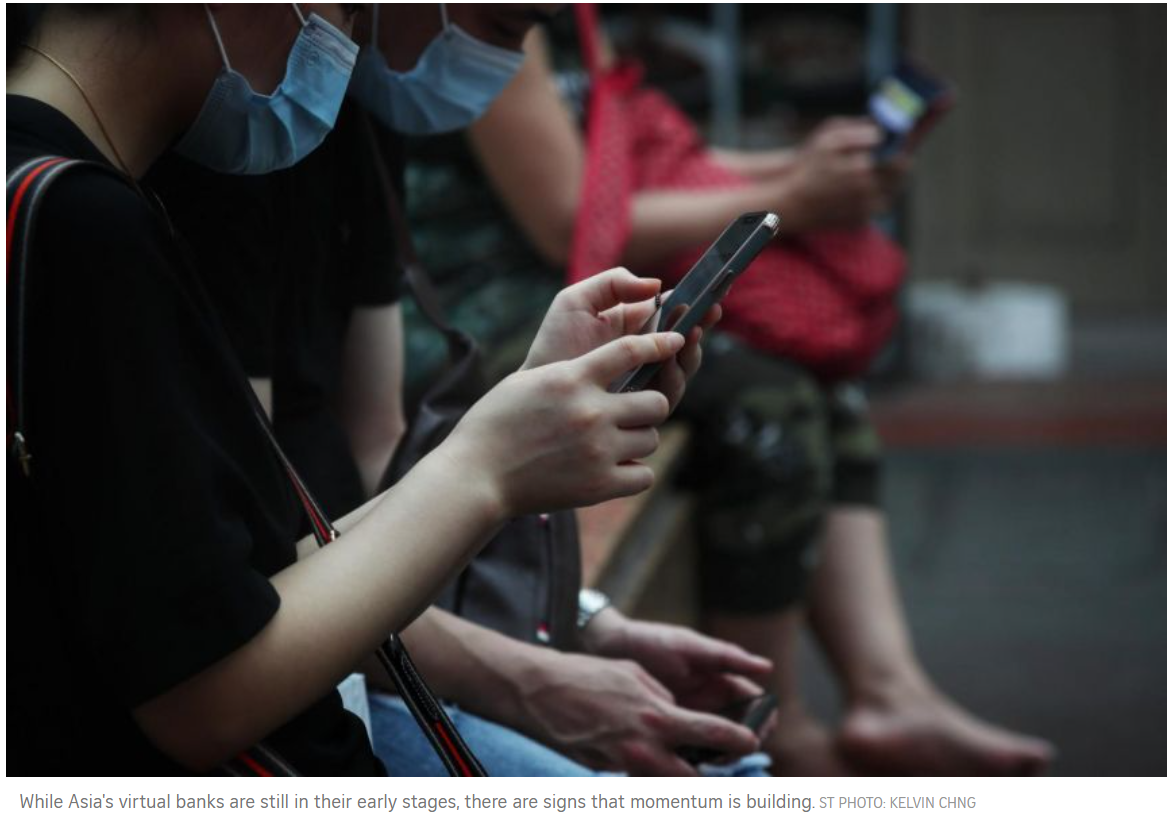Over 70% of Singapore consumers open to switching to digital banks: Survey
SINGAPORE (THE BUSINESS TIMES) – More than 70 per cent of Singapore consumers are open to migrating to digital-first banks, signalling strong competition ahead for the incumbents.
While traditional banks have been beefing up their digital capabilities, many are still not doing enough to convert customer interest in digital products into digital sales despite higher frequency of customer interactions, a McKinsey report showed on Friday (Sept 24).
In the Asia-Pacific, only about 20 per cent to 30 per cent of respondents surveyed have purchased a banking product (such as a savings account, loan or credit card) via a mobile app or online despite indicating their willingness to buy through digital channels.
“This mismatch between interest and actual behaviour is likely the result of many banks having a limited digital offering and not engaging effectively with digital users to deepen relationships,” said McKinsey.
This is where new digital-first players could potentially grab market share – most standalone virtual banks in the Asia-Pacific are owned by consortia with broader combined expertise.
For example, Hong Kong’s Mox Bank was formed by a consortium comprising Standard Chartered, PCCW, HKT and Ctrip Finance.
These partners bring capabilities in banking, media, fintech innovation and advanced analytics, enabling Mox Bank to provide a single point of access to a suite of retail financial services, as well as unique telecom, entertainment and travel propositions, said McKinsey.
In Singapore, the Grab-Singtel consortium and tech giant Sea were awarded digital full bank licences. Digital wholesale bank licences were awarded to Ant Group as well as a consortium comprising Greenland Financial Holdings, Linklogis Hong Kong and Beijing Co-operative Equity Investment Fund Management.
These players are expected to start operating early next year.
While Asia’s virtual banks are still in their early stages, there are signs that momentum is building. By the second quarter of this year, more than 500,000 customers had signed on to Hong Kong’s eight virtual banks.
Against this backdrop, incumbents must provide the full range of services via digital channels as well as deliver their value propositions through customer experiences that are intelligent (anticipating and automating key decisions or tasks and recommending actions), personalised (relevant, timely and based on a detailed understanding of customers’ past behavior and current context), and omni-channel (including seamless embedding of digital banking capabilities within partner ecosystems), said McKinsey.
Despite varying degrees of success in their digital transformations, some banks have so far withstood the disruptive economics of digital production and distribution.
According to McKinsey, leading banks in Asia have largely held their positions in their primary markets. In about 80 per cent of the markets studied, the top five banks of 2017 have remained in the top five this year in terms of holding primary banking relationships with retail customers.
Some have digitised their businesses – creating new customer interfaces, streamlining customer journeys and modernising middle and back offices – while some are launching new digital propositions and business models.
DBS Bank, for example, has strengthened its market position largely by digitising processes across the enterprise. It was also one of the first banks globally to measure digital value creation by behavioral segment: digital (60 per cent) and traditional (40 per cent).
In 2019, the lender’s digital segment achieved a cost-to-income ratio of about 34 per cent, 20 percentage points lower than the 54 per cent ratio of the traditional segment. Last year, this spread widened to 30 percentage points.
Over in India, the State Bank of India (SBI) took on the role of “digital attacker” with its launch of Yono in 2017, a digital banking platform.
By focusing on the digitally-savvy segment of SBI’s 448 million customers, Yono grew rapidly with 24 million accounts as at July last year. SBI has also leveraged the digital capabilities of Yono in other markets such as Britain, said McKinsey.
To stay relevant and stand apart from the competition, incumbents must manage the costs of legacy networks and systems aggressively while building new capabilities, that is, modernising technology and acquiring new skills, it further said.
Source: https://www.straitstimes.com/business/banking/over-70-of-singapore-consumers-open-to-switching-to-digital-banks-survey


 Thailand
Thailand




